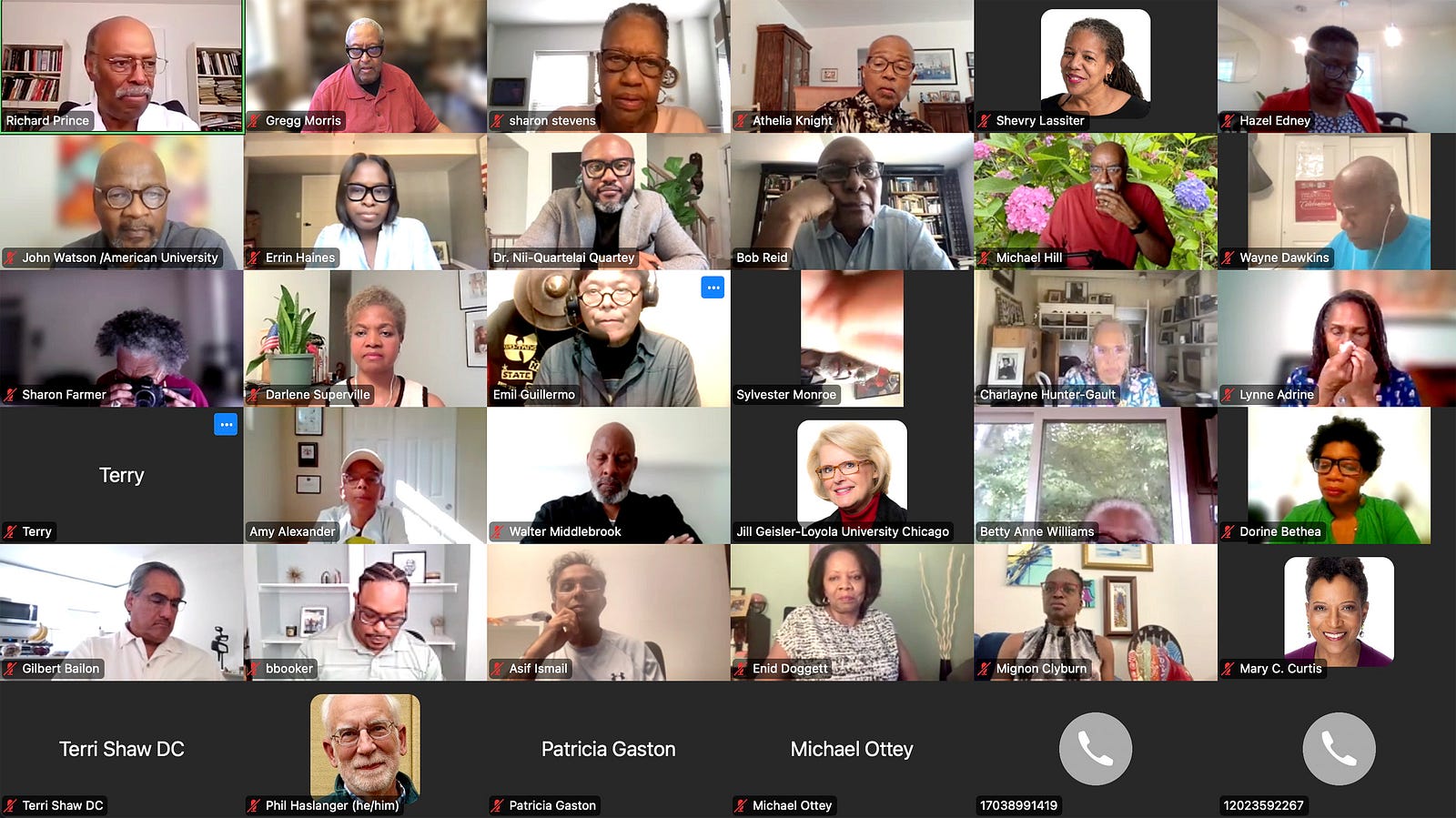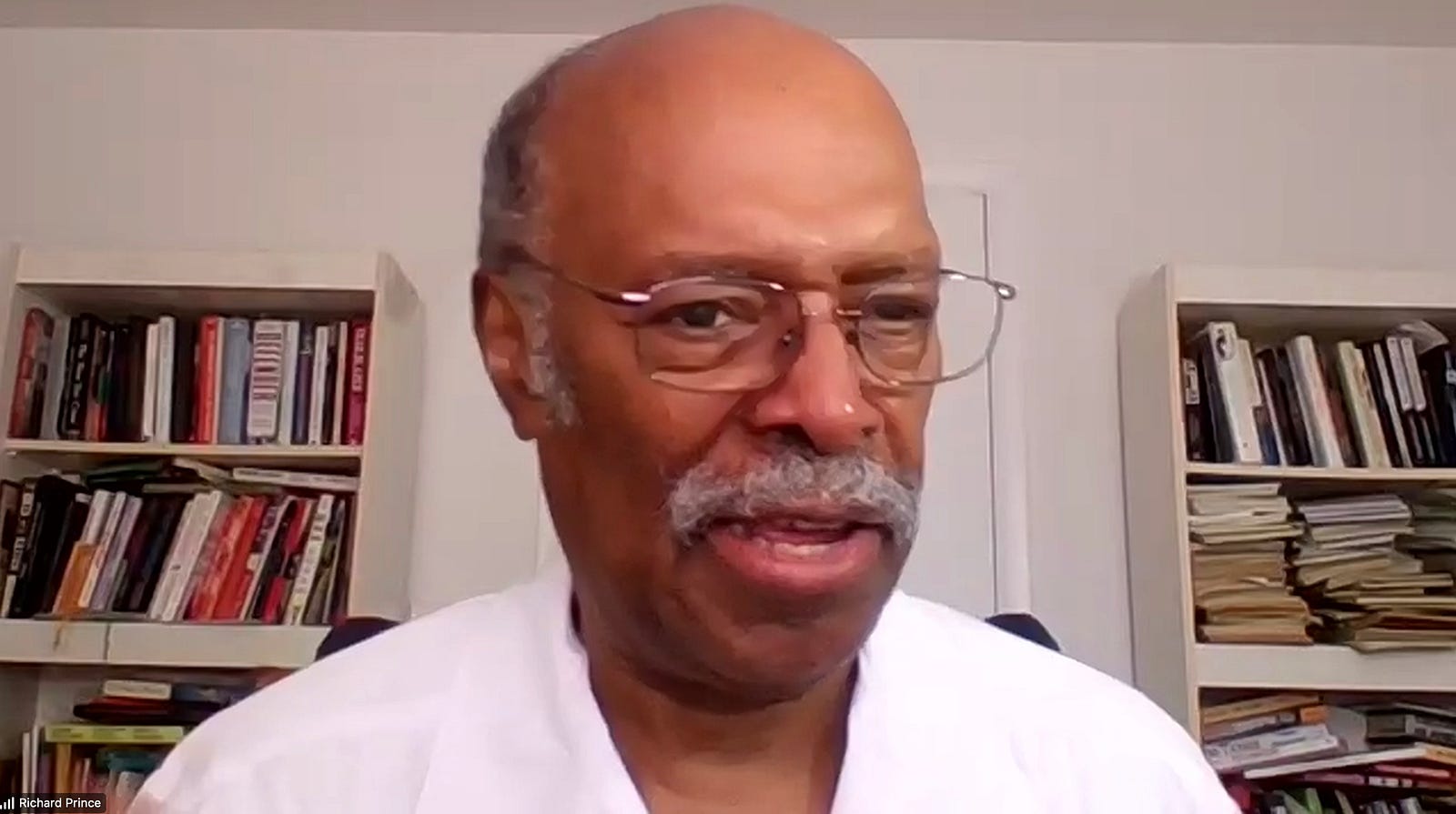
Succinct Synopsis
The roundtable laser focused typical news media coverage as well as public perceptions, misperceptions, misleading and manipulative distortions of Kamala Harris, the current U.S. Vice President and Democratic Presidential Candidate.
Panelists: Amy L. Alexander, author of “How San Francisco’s Tight Community Of Female ‘Firsts’ Shaped Kamala Harris” (HuffPost); Brakkton Booker, Politico; Errin Haines, the 19th News; Nii-Quartelai Quartey, Ed.D., author, “Kamala, The Motherland and Me”; host, KBLA talk radio, Los Angeles; April Ryan, the Grio; Darlene Superville, Associated Press.
The roundtable was spirited but civil sharp discussion about news media coverage and the positioning of Kamala Harris as the Democratic Presidential Nominee. The back-and-forth repartee and discussions were civil but intense. There was an active ZOOM chatbox. Key points of the discussion included:
· Harris has evolved as a candidate since her initial 2020 presidential run, becoming more comfortable leaning into her personal story and identity as a Black and South Asian woman. However, some panelists felt she could do more to explicitly embrace her South Asian heritage.
· The media coverage of Harris has been mixed, with concerns raised about the lack of substantive policy discussions and a high bar being set for her compared to previous candidates. Panelists noted the importance of the Press Corps becoming more diverse and culturally competent in covering Harris.
· There was discussion around the challenges Harris faces in appealing to younger and Black male voters as well as the need to ask tough questions about her record and positions, rather than just focusing on her historic candidacy.
Panelists also raised broader concerns about disinformation, “low information” voters, and the media’s failure to adequately cover threats to democracy compared to focusing on sensationalistic stories.

Richard Prince

I write an online column called journalism externalism.com on diversity issues in the news business. This round table is an extension of that. We started the round table in 1999. Remember back then when a friend of ours was leaving to pursue a doctorate.
He said keep these going. And we met every month in various restaurants in Washington DC until the Covid Pandemic. When we switched to Zoom, our participation multiplied and we hope to have more round tables at our hybrid that is meeting in person as well as having people attend the Zoom. We’ve had five of those so far. The last one being last month in Chicago, coincident with the NABJ Convention.
We think of this as an online dinner party with the purpose to network and to learn. Some of the networking takes place in the chat room, so please feel free to make use of it. Special welcome to those on Facebook. Please leave messages in the comment section if you want to reach us. All comments are on the record, and we ask everyone to be respectful of other people’s time. So please be succinct and to the point.
We have our panelists ready to discuss vice President and Democratic presidential candidate, so we’re eager to hear them. I told ’em that my first question to them would be: What is it that we need to know? Mostly other stories, especially about Kamala Harris and what do they think, has been missing as far missing from the coverage.
Now, of course, everybody hasn’t read all the coverage or watched all the coverage, but just from what you’ve seen and read, what are we not getting? So let’s start. I’m looking at the screen here. Let’s start with Errin Haynes from the 19th. Erin, good to see you. Thank you, Richard. Here. Oh, three minutes, huh? Oh yes. Good to be with all of you.

Publisher, Editor Gregg W. Morris